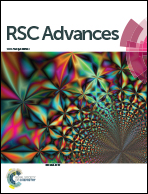A comparative degradation study of commercial lithium-ion cells under low-temperature cycling
Abstract
Severe deterioration of lithium-ion cells at low temperatures constitutes one of the bottlenecks for the wide adoption of electric vehicles. Notwithstanding the remarkable progress in fundamental understanding, a knowledge gap remains in how the low-temperature aging depends on the material chemistry, the application orientation that is mainly dictated by electrode structure, and the cell format. In this contribution, four types of lithium-ion cells that are different in application orientation (power or energy), cathode chemistry (LiNixMnyCo1−x−yO2 or LiNixCoyAl1−x−yO2), and cell format (18 650 cell or pouch cell) are subjected to low-temperature cycling tests. The aging phenomena and mechanisms during low-temperature cycling are systematically analyzed using electrochemical methods. Cell resistance increases more remarkably for energy-type cells, while cell capacity decreases more quickly for power-type cells during low-temperature cycling. Different material chemistries lead to different limiting processes during low-temperature cycling. Generated heat dissipates much more easily for pouch cells than for 18 650 cells, thereby making lithium plating more serious for pouch cells during low-temperature cycling.



 Please wait while we load your content...
Please wait while we load your content...